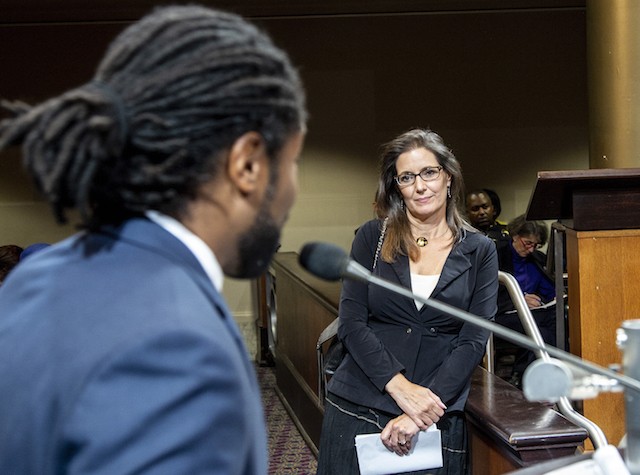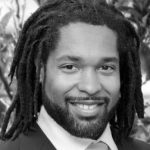City Government
Opinion: Mayor Must End Obstruction of Independent Police Commission

 Oakland’s Community Police Review Agency (CPRA) released a shocking report on May 3 exonerating four Oakland police officers who shot and killed an unconscious man, Joshua Pawlik, on March 11, 2018.
Oakland’s Community Police Review Agency (CPRA) released a shocking report on May 3 exonerating four Oakland police officers who shot and killed an unconscious man, Joshua Pawlik, on March 11, 2018.
According to the report, Oakland police spent nearly an hour observing Mr. Pawlik while he lay on the ground, yet it took mere seconds for officers to kill him as he allegedly began to regain consciousness.
In January 2019, internal investigations by the Oakland Police Department (OPD) concluded that the officers’ use of lethal force was “objectively reasonable,” and that only minor discipline should be imposed on two supervisors, Sergeant Negrete, and Lieutenant Yu, for leadership failures.
Chief Anne Kirkpatrick then reduced the recommended discipline for supervisory failures, in effect, allowing her officers to escape nearly all responsibility after killing a sleeping man.
Kirkpatrick’s findings caught the attention of Robert Warshaw, a former police chief who serves as the Federal Monitor and Compliance Director for Oakland’s long-running Negotiated Settlement Agreement, a 2003 federal court settlement that was only supposed to last for five years.
In his report, Warshaw found that Kirkpatrick’s assessment was “disappointing and myopic,” and that OPD’s internal investigations were “deficient, non-invasive, and replete with leading questions that served as attempts to support the justification of the officers’ actions.”
Warshaw reversed Kirkpatrick’s findings, stating that the officers’ use of force was unlawful, and that Kirkpatrick had not, “adequately considered the event as a whole.”
In the months following, Oakland’s Police Commission has been waiting for CPRA to present their independent findings to the Commission for review and discussion.
Under the City Charter, when there is a conflict between OPD’s findings and CPRA’s findings, the Police Commission forms a Discipline Committee to make a final decision on officer discipline.
The report released by CPRA last Friday–after a year of supposed investigation—is a deeply disappointing rubber-stamp of OPD’s shoddy internal review. CPRA’s report shows that the agency failed to conduct an independent investigation, in part due to delays by OPD.
In its first year of oversight, the Police Commission has confronted obstruction at every turn, and CPRA’s report demonstrates that the consequences of this ongoing power struggle include a police department that is failing to adjust to civilian oversight, and a civilian review agency that was unable to produce an independent report for the Commission to review.
CPRA was not called to the scene. Four months after her officers killed Mr. Pawlik, Kirkpatrick had only provided CPRA with body camera footage and photos of the scene. CPRA’s investigator did not receive further materials from OPD for another six months.
It does not appear that CPRA conducted much of an investigation while waiting for OPD to turn over evidence. The Police Commission’s Enabling Ordinance requires that CPRA investigators videotape interviews of officers who are accused of serious misconduct. According to CPRA’s report, the investigator conducted only one interview.
Joan Saupé, the assigned investigator, wrote that, “Further interviews were not conducted due to concerns as to the reliability of the information given the time that has passed.”
CPRA’s report represents an unacceptable systemic failure. The Police Commission should reject the OPD-based book report written by CPRA, and demand that an actual independent investigation take place. It’s time for Mayor Libby Schaaf to get off the sidelines and fulfill her 2016 campaign promise to reform OPD.
The City Administration that she leads has produced several roadblocks that have resulted in violent police officers nearly escaping accountability for their actions. Libby claims that she’s “Oakland Tough.” It’s time for the Mayor to prove it by ending her administration’s obstruction of the independent Police Commission.
Henry Gage III is an attorney and member of the Oakland Coalition for Police Accountability.
Activism
Oakland Post: Week of May 21 – 27, 2025
The printed Weekly Edition of the Oakland Post: Week of May 21 – 27, 2025

To enlarge your view of this issue, use the slider, magnifying glass icon or full page icon in the lower right corner of the browser window.
Activism
IN MEMORIAM: Nate Holden, State Senator and Longtime Los Angeles Councilmember, Dies at 95
Los Angeles County Supervisor Janice Hahn described Holden as “a lion” in the State Senate and a force to be reckoned with on the Los Angeles City Council.” Hahn added that she learned a lot working with Holden when she was a new councilmember.

By Bo Tefu, California Black Media
Former Los Angeles City Councilmember Nathaniel “Nate” Holden, a prominent figure in the city’s politics, passed away at the age of 95, his family confirmed on May 7.
Holden, who represented South Los Angeles for 16 years on the City Council and served one term in the California State Senate, was widely regarded as a forceful advocate for his community.
Los Angeles County Supervisor Janice Hahn described Holden as “a lion” in the State Senate and a force to be reckoned with on the Los Angeles City Council.”
Hahn added that she learned a lot working with Holden when she was a new councilmember.
Holden’s journey to political prominence began in the segregated South, where he was born in Macon, Georgia, in 1929. He often recalled the childhood moment when he first heard the governor of Georgia vowing to continue suppressing Black people.
“Doing the best you can for the people. Law and order. Make sure that people’s communities are safe. I did it all,” said Holden, reflecting on his legacy.
Holden is survived by his sons, including former California Assemblymember Chris Holden, who represented a district in Southern California that includes Pasadena and Altadena in Los Angeles County and cities in San Bernardino County.
Activism
Oakland Hosts Town Hall Addressing Lead Hazards in City Housing
According to the city, there are 22,000 households in need of services for lead issues, most in predominantly low-income or Black and Latino neighborhoods, but only 550 to 600 homes are addressed every year. The city is hoping to use part of the multimillion-dollar settlement to increase the number of households served each year.

By Magaly Muñoz
The City of Oakland’s Housing and Community Development Department hosted a town hall in the Fruitvale to discuss the efforts being undertaken to remove lead primarily found in housing in East and West Oakland.
In 2021, the city was awarded $14 million out of a $24 million legal settlement from a lawsuit against paint distributors for selling lead-based paint that has affected hundreds of families in Oakland and Alameda County. The funding is intended to be used for lead poisoning reduction and prevention services in paint only, not water or other sources as has been found recently in schools across the city.
The settlement can be used for developing or enhancing programs that abate lead-based paint, providing services to individuals, particularly exposed children, educating the public about hazards caused by lead paint, and covering attorney’s fees incurred in pursuing litigation.
According to the city, there are 22,000 households in need of services for lead issues, most in predominantly low-income or Black and Latino neighborhoods, but only 550 to 600 homes are addressed every year. The city is hoping to use part of the multimillion-dollar settlement to increase the number of households served each year.
Most of the homes affected were built prior to 1978, and 12,000 of these homes are considered to be at high risk for lead poisoning.
City councilmember Noel Gallo, who represents a few of the lead-affected Census tracts, said the majority of the poisoned kids and families are coming directly from neighborhoods like the Fruitvale.
“When you look at the [kids being admitted] at the children’s hospital, they’re coming from this community,” Gallo said at the town hall.
In order to eventually rid the highest impacted homes of lead poisoning, the city intends to create programs and activities such as lead-based paint inspections and assessments, full abatement designed to permanently eliminate lead-based paint, or partial abatement for repairs, painting, and specialized cleaning meant for temporary reduction of hazards.
In feedback for what the city could implement in their programming, residents in attendance of the event said they want more accessibility to resources, like blood testing, and information from officials about lead poisoning symptoms, hotlines for assistance, and updates on the reduction of lead in their communities.
Attendees also asked how they’d know where they are on the prioritization list and what would be done to address lead in the water found at several school sites in Oakland last year.
City staff said there will be a follow-up event to gather more community input for programming in August, with finalizations happening in the fall and a pilot launch in early 2026.
-

 Activism4 weeks ago
Activism4 weeks agoAI Is Reshaping Black Healthcare: Promise, Peril, and the Push for Improved Results in California
-

 Activism4 weeks ago
Activism4 weeks agoBarbara Lee Accepts Victory With “Responsibility, Humility and Love”
-

 Activism4 weeks ago
Activism4 weeks agoESSAY: Technology and Medicine, a Primary Care Point of View
-

 Activism4 weeks ago
Activism4 weeks agoFaces Around the Bay: Author Karen Lewis Took the ‘Detour to Straight Street’
-

 Arts and Culture4 weeks ago
Arts and Culture4 weeks agoBOOK REVIEW: Love, Rita: An American Story of Sisterhood, Joy, Loss, and Legacy
-

 Activism4 weeks ago
Activism4 weeks agoNewsom Fights Back as AmeriCorps Shutdown Threatens Vital Services in Black Communities
-

 #NNPA BlackPress4 weeks ago
#NNPA BlackPress4 weeks agoThe RESISTANCE – FREEDOM NOW
-

 Activism4 weeks ago
Activism4 weeks agoTeachers’ Union Thanks Supt. Johnson-Trammell for Service to Schools and Community








































